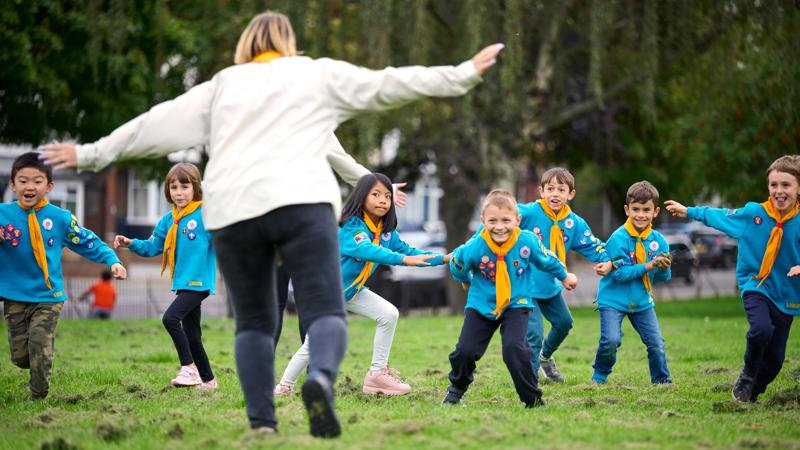Promoting positive behaviour
Find out how to support with children and young people’s behaviour
Quick links
As Scouts, we’re guided by our values and we’re committed to creating a positive experience for everyone. This guidance gives some points to think about to support volunteers with promoting positive behaviour.
Think about reasons for the behaviour
Most children and young people will behave in challenging ways at some point. Feeling upset, angry, stressed or disappointed is a normal part of life. Because we develop our ability to manage our emotions as we grow up, children and young people do sometimes act out when they’re going through big feelings. In response to their emotions, they may display a range of behaviours.
Consider everyone’s needs
Some behaviours may be linked to medical conditions, disabilities or additional needs. Take a look at our guidance for supporting those with additional needs and neurodiversity. There’s also advice on how to make reasonable adjustments to meet young peoples’ needs.
There may be factors from outside the section meetings that impact on the behaviour of a young person in a group eg bullying, family and social situations or issues that are personal to them that they may not have shared with you. Try to remember that the behaviour you see on the surface is probably not the whole story. Take a look at our guidance on supporting young people. If you’re worried about a child or young person, follow the Safeguarding Code of Conduct for Adults (Yellow Card).
Consider the programme
Some challenging behaviour can be a result of boredom or inactivity, or on the other hand too much energetic activity, so the way you plan the programme can have a big impact on behaviour. Run a balanced programme, including games and activities to support the development of co-operation and teamwork. Manage unstructured time so that young people always have something to do. You can use our programme development toolkit to assess your programme and get support.
Think about communication
Effective communication is the key to promoting positive interactions and behaviour, supporting children and young people to build self-esteem and confidence and fostering positive relationships.
Communication with the child or young person
If you’re worried about a child or young person’s behaviour, talk to them about it clearly and calmly. Be clear that the behaviour is the problem, not them or their feelings. Try to understand if there are things that trigger certain behaviours which are challenging.
Model positive language behaviour for young people which are in line with our Scout values. Always follow the Yellow Card.
Communication with parents and carers
Talk to parents and carers about their child or young person’s behaviour. There may be strategies they use at home which could be effective in Scouts, or a behaviour plan used at school, which you can refer to. Where a child or young person has additional needs, it’s important to work with the parent or carers to develop a positive relationship and plan appropriate support strategies.
Keep in touch with parents and carers and talk about how things are going. Be open about any concerns and agree a plan together.
Communication within the section
Establish good routines for meetings and set expectations of what is required from young people. Use signals so that you don’t need to use your voice all the time. For example, a hand in the air means “stop talking and pay attention”. Give notice when an activity is about to begin or end by counting down from five to zero. Keep explanations short and clear.
Actively involve young people in creating a code of conduct for the section. They’re more likely to stick to something they have been involved in creating. Display it clearly and re-visit it regularly. Refer to it positively, when giving praise and recognition, as well as when giving prompts or reminders about expected behaviours.
Discuss appropriate behaviour before events such as nights away and trips, where there may be additional boundaries needed. Read our guidance on nights away and safeguarding.
Praise and recognition
There are lots of ways you can recognise achievement. Points systems, certificates, Scout of the month, and simply saying ‘well done’ and ‘thank you’, can all be used effectively to promote positive behaviour.
Think about support
Volunteers working together and showing consistency is a good foundation for promoting positive behaviour in young people. You can get further support with promoting positive behaviour from your line manager, Group Lead Volunteer, District Inclusion Team, or the Scouts Support Centre.
Anti-bullying
Our anti-bullying guide helps you address bullying and take steps to reduce the chances of it happening in your group or section.
Read our anti-bullying guidance
Promoting positive behaviour learning
In this learning you’ll learn how to define and respond to challenging behaviour, and learn principles and strategies to plan for positive behaviour.

Find out how to support members with additional needs.